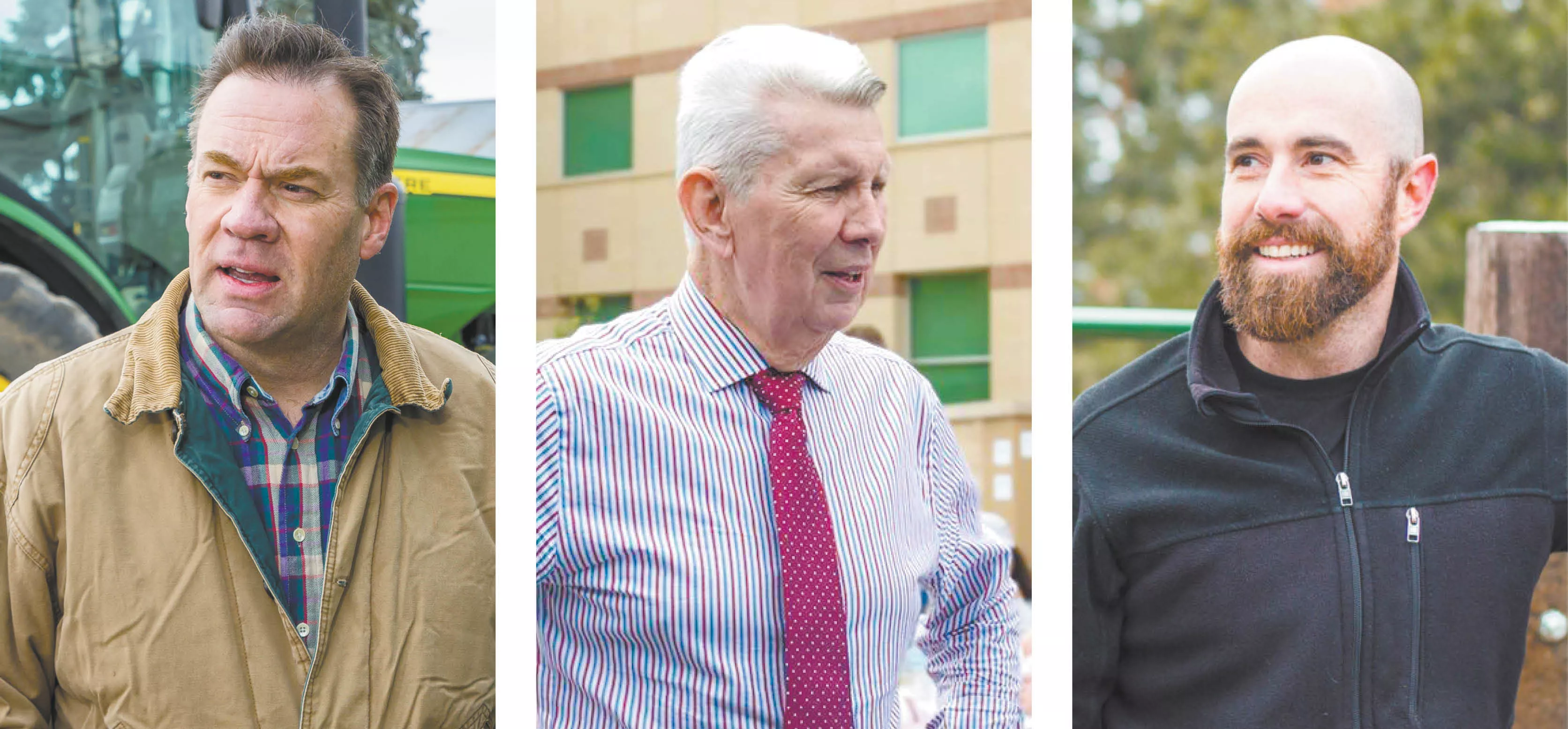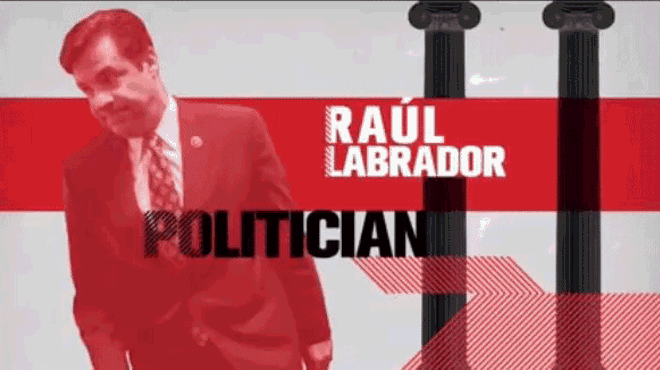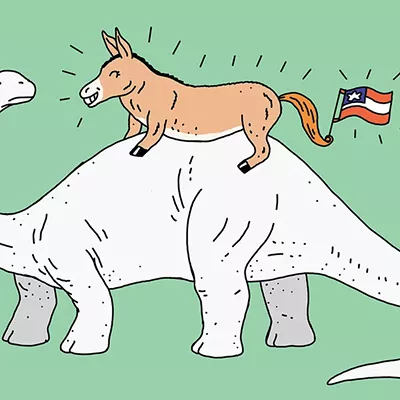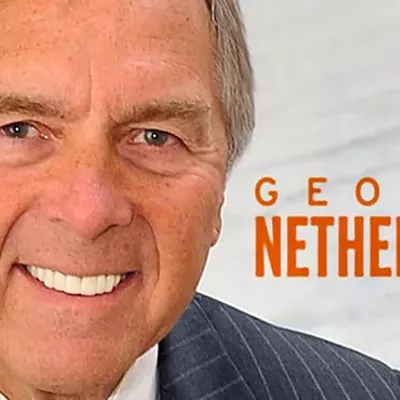If anyone knows that an Idaho primary can bring surprises, it's Republican Rep. Raúl Labrador. During the Tea Party wave in 2010, the former immigration attorney surprised observers by crushing his well-funded, establishment-supported Republican opponent.
So eight years later, with Labrador vacating the seat to run for governor, anything can happen. Yes, Labrador endorsed Russ Fulcher, the former state Senate majority caucus leader who tried unsuccessfully to defeat Gov. Butch Otter in a Republican primary four years ago. But Labrador's endorsement didn't exactly clear the field. Six other candidates, including conservative author Michael Snyder, state Rep. Christy Perry, retired U.S. Army Lt. Alex Gallegos and fellow Army veteran Nick Henderson flooded into the race.
Yet judging by campaign contributions, Fulcher and former Idaho Lt. Gov. David Leroy are the clear frontrunners, with Coeur d'Alene Rep. Luke Malek trailing behind in third. The Inlander interviewed all three at length.
WHO ARE THESE GUYS?
Fulcher — a former Micron executive with a square jaw and a Mitt Romney haircut — seeks to largely continue Labrador's ideological priorities, though not necessarily his tone. His endorsements are full of far-right leaders like Texas Sen. Ted Cruz, Spokane Valley Rep. Matt Shea and Idaho state Reps. Heather Scott and Vito Barbieri.
Leroy, with a deep voice and white hair, strikes the pose of elder statesman, in both senses of the word. The 70-year-old's also served as Idaho attorney general, acting governor and United States nuclear waste negotiator. He ran for governor in 1986 (and lost) and ran for Congress in 1994 (and also lost.)
Malek, a bald former prosecutor with a Pacific Northwest bro beard, stresses his credentials as a health care policy wonk. He has the support of former Idaho Sen. Larry Craig, the Professional Firefighters of Idaho, the Fraternal Order of Police and more than a dozen of his fellow state legislators.
WILL THEY JOIN THE FREEDOM CAUCUS?
Labrador's legacy will be defined in part by his role in co-founding the Freedom Caucus, the group of about 40 far-right representatives who helped stymie the Republican establishment legislation, forced Speaker of the House John Boehner's resignation and inspired Trump to blame the Freedom Caucus for the failure of an Obamacare repeal bill, tweeting "we must fight them, & Dems, in 2018!"
Along with Labrador, Freedom Caucus leaders Jim Jordan and Mark Meadows have endorsed Fulcher. And in some cases, Fulcher might even be more hardline than Labrador — he questions Labrador's choice to vote for Boehner as speaker in 2015. But Fulcher says he wants to wait to see how the caucus might impact his ability to get things done in Congress before signing up.
Malek, by contrast, blasts the caucus for being ineffective.
"Tell me what the Freedom Caucus has done for the cause of freedom, rather than shoot down every conservative idea that comes as an actual solution?" Malek says.
Leroy also says he wouldn't rush to join the Freedom Caucus: He'd prefer to create a caucus of representatives from small states, or an "Idaho caucus" with his fellow Idaho delegates — noting his strong relationship with figures like Idaho District 2 Rep. Mike Simpson.
That, in itself, makes Leroy distinct from Labrador, who called Simpson, a "bully," a liar and a compromiser.
HOW SHOULD IDAHO HAVE REACTED TO OBAMACARE?
It was 2013 when then-Senate majority caucus leader Russ Fulcher took to the floor of the Idaho Senate, and warned against what he saw as a near-fatal mistake: Idaho's decision to build its own health care marketplace to handle Obamacare rather than defaulting to the federal government like most conservative states.
"I'm just one little state senator, in one little state, trying to do anything I can to keep the strings from the federal puppeteer to being attached to my body and the body of those I serve," Fulcher says. "We have nothing to gain. We have much to lose."
And he didn't stop there: Incensed by Idaho Gov. Butch Otter's support for the exchanges, he launched a challenge — with Labrador's endorsement — against the sitting governor during the 2014 primary.
"Part of my party has never forgiven for me for that," Fulcher says.
Malek, by contrast, helped lead the charge in the Idaho House to adopt the state-based exchanges. Nothing to gain? Over time, Malek points out, Idaho's already saved residents with health care on the exchanges $22 million compared with states using the federally operated marketplace. Idaho has more choices, more insurers in the marketplace and lower premiums than many other Republican states, Malek says.
Fulcher, however, has argued that Idaho should have concentrated on seeking to create its own private health care alternative instead of putting effort into improving Obamacare.
But Malek says that he's the one who's been actually trying to improve health care — whether by funding local crisis centers or pushing for federal waivers that attempted to improve the private insurance rates by letting Idaho provide Medicaid to some of the highest-cost patients. And he argues Fulcher and his allies have been the ones sabotaging those efforts.
Fulcher, meanwhile, accuses Malek of being a pawn of Obama. And Leroy? He largely demurs.
"I'm not interested in going retro on what we woulda-coulda-shoulda," Leroy says. He prefers to focus on how Obamacare can be undone and a free-market state-by-state system can be put in its place.
WHO'S THE PUREST OF THEM ALL?
In a way, this race is a throwback to the days of the Tea Party — all but declared dead nationally. These days, the Republican Party doesn't talk much about deficits and the danger of spending. But Fulcher and Leroy still do. They stick to the Tea Party position: Confident that cutting taxes won't hurt the deficit, but arguing that increases in spending — like the recent omnibus budget bill — risk doing serious damage, both to the country and the Republican brand.
But Malek says he would have voted for the bill. His brother is serving in Afghanistan, and he says he wouldn't want to risk leaving the military "high and dry." It's a risky position to take.
Malek knows that, in the western district of Idaho, the scent of moderation can smell like loss. Even Fulcher gets attacked from the right, with candidate Michael Snyder seizing upon Fulcher's donations to more moderate Idaho Republicans like Lt. Gov. Brad Little, Sen. Shawn Keough and former Idaho Superintendent Tom Luna.
Despite an A rating from the National Rifle Association, Malek is a frequent target of attacks from groups on the right, with comparatively dismal rankings from the influential Idaho Freedom Foundation and the national American Conservative Union. Today, he shrugs off those attacks.
"I'm not going to play those paint-by-number games," Malek says. "I'm still going to do my research. I don't give a damn at the end of the day what the ranking system says."
There's a bit of irony here: This is a race obsessed with both debating who aligns closer to Republican orthodoxy and debating who can align themselves closer with Trump, who won his own primary in part by thumbing his nose at Republican orthodoxy.
"On some of the issues I'm the only one who does support the president," Malek says.
Malek, like Trump, would have reluctantly voted for the omnibus spending bill and supports reexamining the legality of bump stocks. And in his willingness to take controversial stances, Malek also compares himself to another Idaho figure: Raúl Labrador.
"He and I are both fiercely independent people," Malek says. "Nobody tells Labrador what to do."
After all, if there's any card you can play that can beat conservative purity in Idaho, it's independence. Lack of independence is an attack that Fulcher levels against Leroy.
"I believe David is going to be more 'go-along, get-along,'" Fulcher says. "That was his mindset when he served here."
And lack of independence is an attack that Malek and Leroy level against Fulcher, noting that the anti-tax group Club for Growth had poured nearly $640,000 into getting him elected. To them, that looks a lot like, well, strings from a puppeteer.
"He, unfortunately, now is in danger of becoming the congressman for the Club for Growth," Leroy says about Fulcher. "This is a time when you need someone who is pure in principle and pragmatic in action."
So who's the purest, most principled and most pragmatic? Considering there are seven candidates in a primary often dogged by low turnout, that far-reaching assessment will likely be made by a relatively tiny number of voters. ♦
[email protected]
* An earlier version of this story named Russ Fulcher as a former Idaho Senate majority leader. However, he was a Senate majority caucus leader. The article has been updated online.




























